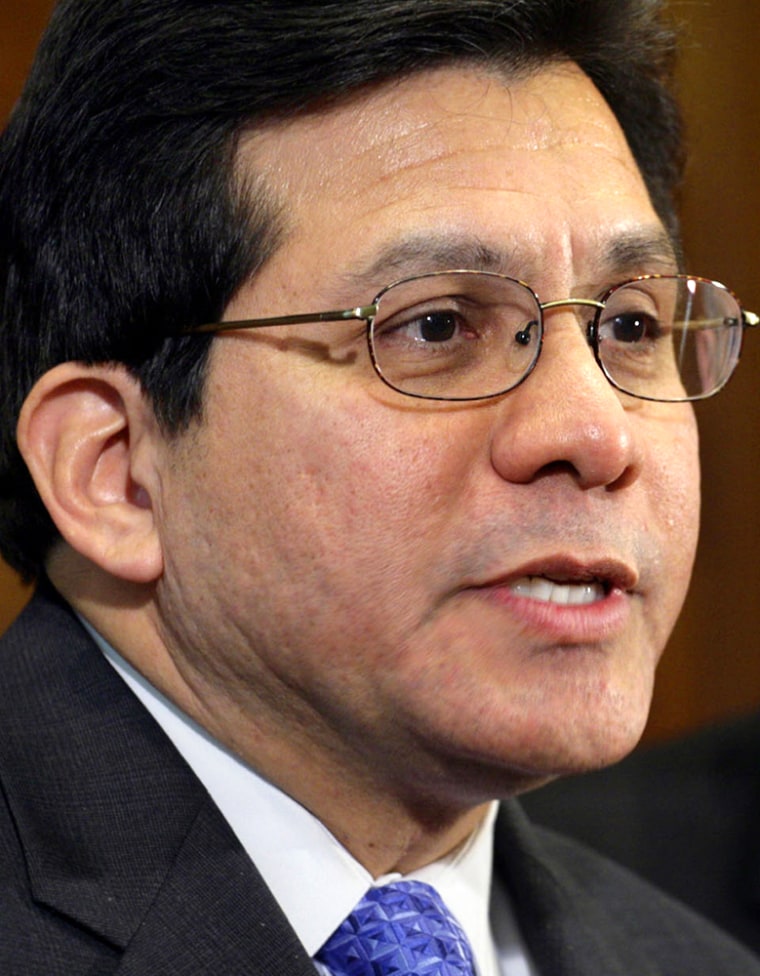Attorney General Alberto Gonzales has agreed to testify at a Senate hearing on the Bush administration’s domestic spying program, a Justice Department official said Friday.
Gonzales will discuss the legal authority for the National Security Agency’s warrantless eavesdropping on telephone conversations between suspected terrorists and people in the United States, the official said.
The attorney general will not talk about operational aspects of the program at the hearing, which is expected to take place early next month, the official said.
Sen. Arlen Specter, R-Pa., chairman of the Senate Judiciary Committee, said Sunday that he had asked Gonzales to testify publicly.
The attorney general was White House counsel when Bush initiated the program.
The official spoke on condition of anonymity because Gonzales was expected to discuss the matter with reporters later Friday.
Democrats and Republicans in Congress, legal scholars and analysts at the non-partisan Congressional Research Service have questioned whether the NSA program is within the law.
The existence of the program was first reported in The New York Times in December. Soon after, Bush acknowledged that he had authorized the NSA eavesdropping in the months after the attacks of Sept. 11, 2001. He said his legal authority rested on his constitutional powers and the congressional resolution authorizing the use of force following Sept. 11.
The NSA program bypassed the special court that Congress established in 1978 to approve or reject secret surveillance or searches of foreigners and U.S. citizens suspected of terrorism or espionage.
Gonzales defended the program at a news conference last month, saying the NSA did not seek warrants from the secretive Federal Intelligence Surveillance Act court because “we don’t have the speed and the agility that we need in all circumstances to deal with this new kind of enemy.”
He refused to say how many people have been targeted.
